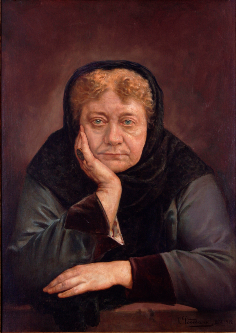La doctrina secreta. Vol I. Cosmogenesis
Frases célebres de Helena Petrovna Blavatsky
“la obscuridad adoptó la iluminación con objeto de hacerse visible”
La doctrina secreta. Vol I. Cosmogenesis
ISIS SIN VELO TOMO I
ISIS SIN VELO TOMO I
Helena Petrovna Blavatsky Frases y Citas
La doctrina secreta. Vol I. Cosmogenesis
ISIS SIN VELO TOMO I
ISIS SIN VELO TOMO I
“La Década mística 1 + 2 + 3 + 4 = 10 expresa esta idea.”
ISIS SIN VELO TOMO I
Helena Petrovna Blavatsky: Frases en inglés
Lucifer http://www.katinkahesselink.net/squote/l37.html (February 1888)
Comparative theology works both ways.
Fuente: Isis Unveiled (1877), Volume II, Chapter XI
ii., 76 a
Fuente: Isis Unveiled (1877), Volume II, Chapter VI
And how shall the “still small voice” make itself heard in a soul entirely occupied with its own privileged tenants? What room is there left for the needs of Humanity en bloc...? He who would profit by the wisdom of the universal mind, has to reach it through the whole of Humanity without distinction of race, complexion, religion, or social status. It is altruism, not ego-ism even in its most legal and noble conception, that can lead the unit to merge its little Self in the Universal Selves. It is... to this work that the true disciple of true Occultism has to devote himself if he would obtain... divine Wisdom and Knowledge. p. 62
Practical Occultism (1888)
exclaims Jesus, rebuking the taunting apostle.(Gospel according to Mark, viii. 33.) There is a tradition in the Greek Church which has never found favor at the Vatican. The former traces its origin to one of the Gnostic leaders — Basilides, perhaps, who lived under Trajan and Adrian, at the end of the first and the beginning of the second century. With regard to this particular tradition, if the Gnostic is Basilides, then he must be accepted as a sufficient authority, having claimed to have been a disciple of the Apostle Matthew, and to have had for master Glaucias, a disciple of St. Peter himself...
Chapter III
Isis Unveiled (1877), Volume II
“Truth, high-seated upon its rock of adamant, is alone eternal and supreme.”
Isis Unveiled (1877), Vol. I Preface
